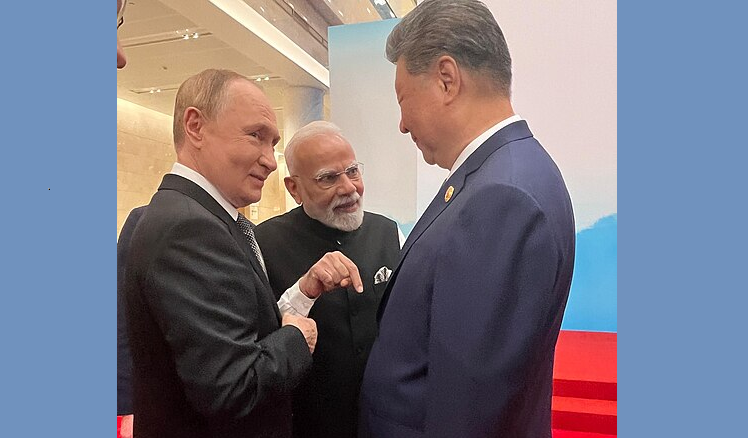A Summit That Shook a Partnership
How a meeting strained US-India ties.
In a global landscape shifting towards a "multipolar" world, nations are navigating a complex web of alliances. No country embodies this strategic balancing act more than India, which maintains crucial partnerships with both the West and the Russia-China axis. This delicate equilibrium was put to the test at the Shanghai Cooperation Organization (SCO) summit, a meeting that, through its powerful optics, sent a clear message to Washington.
The summit, held in Qingdao, China, became a focal point for global power dynamics, highlighting a significant divergence between India's foreign policy and the interests of the United States. While India has been building closer strategic and defense ties with the U.S., its high-profile engagement at the SCO summit signaled a clear assertion of its independence.
The Diplomatic Fallout: A "Penalty" from Washington
For the U.S., the timing of the SCO summit couldn't have been more sensitive. The Trump administration was already engaged in a global trade war and was particularly vocal about what it saw as an "unfair" trade relationship with India.
The visible camaraderie between Prime Minister Modi, Chinese President Xi Jinping, and Russian President Vladimir Putin was perceived in Washington as more than just a photo opportunity. It was seen as a bold statement of India's strategic autonomy, a signal that New Delhi would not be forced into an exclusive alignment with the West.
In response, the U.S. not only continued but escalated its economic pressure. The administration imposed steep tariffs, up to 50%, on Indian goods.2 While these tariffs were part of a broader "America First" policy, they were also framed as a direct penalty for India's continued import of Russian oil, despite U.S. pressure to limit such trade.
American officials, including President Donald Trump, publicly criticized India. Trump accused India of having high tariffs on U.S. exports and of a growing economic reliance on rivals like Russia and China. This diplomatic friction, fueled by the optics of the SCO meeting, underscored the fact that in Washington's view, India's actions were actively reducing the leverage the U.S. held over its partnerships.
India’s Strategic Message: Navigating a Multipolar World
From India’s perspective, the high-profile meetings were not an anti-U.S. move, but a necessary demonstration of its commitment to strategic autonomy. India has long advocated for a multipolar global order where power is distributed among multiple centers, and its engagement with SCO members was a practical expression of this principle.
This approach allows India to:
Secure its Energy Needs: India's significant purchases of discounted Russian oil were driven by economic necessity, not political loyalty.
Maintain Regional Stability: India's participation in a China-led forum, despite ongoing border disputes, is crucial for de-escalating tensions and fostering dialogue in its own backyard.
Assert Sovereignty: The summit was a platform for India to push back against what it considered "unjustified" U.S. tariffs and to show that it would engage with alternative power centers on its own terms.
A Recalibration in U.S.-India Relations
The immediate impact of these events was a visible cooling of relations. A planned bilateral trade agreement stalled, and high-level visits between U.S. and Indian leaders were postponed. Both sides were forced to reassess their strategic priorities, recognizing that their goals, while often aligned, are not always identical.
Ultimately, Prime Minister Modi’s meetings with Xi and Putin at the SCO summit served as a powerful reminder of the complexities inherent in global diplomacy. They showed that while the U.S. and India are deepening their ties, India will not abandon its long-standing partners or sacrifice its strategic independence to satisfy the demands of a single nation. The incident exposed a fault line in their relationship—a crack that has been managed, but not fully repaired, as both nations navigate an increasingly complex and competitive world order.


